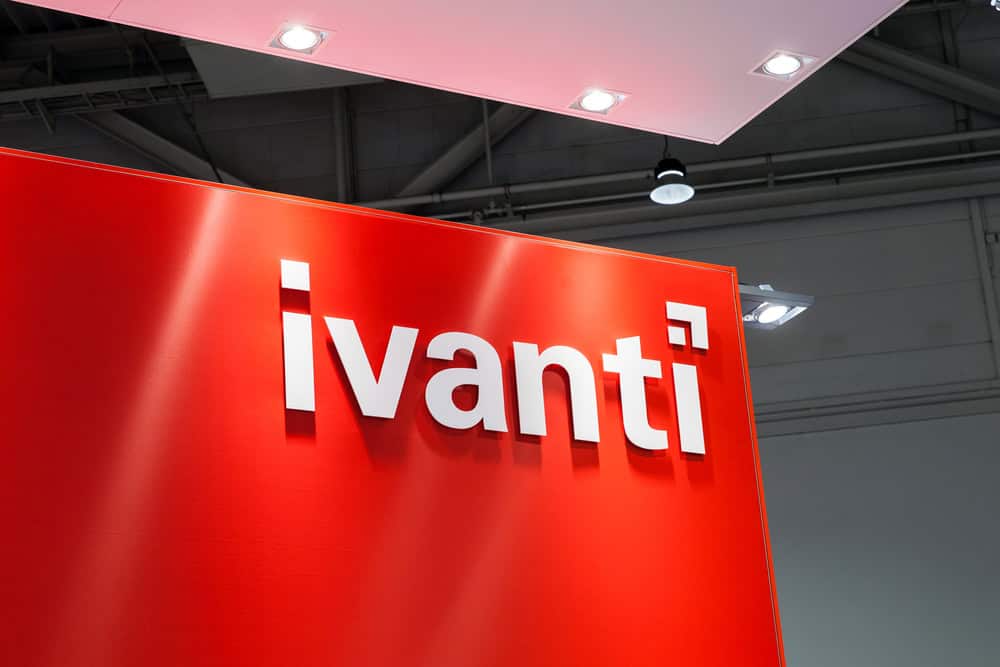#agentic-ai
#agentic-ai
[ follow ]
fromSmashing Magazine
5 days agoBeyond Generative: The Rise Of Agentic AI And User-Centric Design - Smashing Magazine
Developing effective agentic AI requires a new research playbook. When systems plan, decide, and act on our behalf, UX moves beyond usability testing into the realm of trust, consent, and accountability. Victor Yocco outlines the research methods needed to design agentic AI systems responsibly. Agentic AI stands ready to transform customer experience and operational efficiency, necessitating a new strategic approach from leadership.
Artificial intelligence
Startup companies
fromFortune
4 hours agoExclusive: Pace raises $10 million from Sequoia as enterprise AI collides with insurance | Fortune
Agentic AI company Pace aims to disrupt insurance business-process outsourcing by automating document-heavy operations, replacing offshore work and targeting a multibillion-dollar market.
fromDigiday
1 day agoInside the debate over agentic advertising and standards
Digiday attempted to gauge market engagement after the dust had settled, and backers have started to put in the hard yards. First, it's worth a recap of what exactly AdCP is - for some, it's an open-source bridge between today's programmatic infrastructure and the dawn of the agentic era - or, as Digiday's Tim Peterson phrased it, "openRTB for the agentic AI era" (see video below).
Marketing tech
fromSmashing Magazine
5 days agoBeyond Generative: The Rise Of Agentic AI And User-Centric Design - Smashing Magazine
Developing effective agentic AI requires a new research playbook. When systems plan, decide, and act on our behalf, UX moves beyond usability testing into the realm of trust, consent, and accountability. Victor Yocco outlines the research methods needed to design agentic AI systems responsibly. Agentic AI stands ready to transform customer experience and operational efficiency, necessitating a new strategic approach from leadership. This evolution in artificial intelligence empowers systems to plan, execute, and persist in tasks, moving beyond simple recommendations to proactive action.
Artificial intelligence
fromTechzine Global
5 days agoGitLab brings agentic AI to the heart of DevOps
Central to the GA release is Agentic Chat. This functionality builds on the previously introduced Duo Chat but goes a step further by leveraging context from virtually every part of GitLab. Think of issues, merge requests, CI/CD pipelines, and security findings. Agentic Chat can not only advise, but also actually perform actions on behalf of developers, depending on the rights and approvals that have been set.
Software development
Artificial intelligence
fromFortune
1 week agoAdaptability is the new job security and 4 more future AI trends from EY's global chief innovation officer | Fortune
AI adoption hinges on accessible, high-quality data while agentic AI and workforce reskilling transform enterprises amid fragmented policies and synthetic-data challenges.
Artificial intelligence
fromZDNET
1 week agoI let Anthropic's Claude Cowork loose on my files, and it was both brilliant and scary
Agentic file-management tool Claude Cowork automates local file operations but presents significant security, trust, and scalability risks and targets early adopters at $100/month.
E-Commerce
fromForbes
1 week agoHow Your Business Can Survive -- And Thrive -- When AI Takes Over Shopping
Generative AI shopping agents prioritize price, ratings, delivery, and inventory over brand loyalty, risking retailer disintermediation unless businesses build compelling direct agentic experiences.
Artificial intelligence
fromBusiness Insider
1 week agoAnthropic says its buzzy new Claude Cowork tool was mostly built by AI - in less than 2 weeks
Anthropic used Claude to build Cowork, an agentic tool that automates non-coding tasks by accessing user files, now available in preview to Mac subscribers.
fromBig Think
2 weeks agoWhy the real revolution isn't AI - it's meaning
Peter Drucker saw this symbiosis first. He realized that the new industrial order would depend on a worker who produced ideas instead of widgets. The knowledge worker became the engine of prosperity, and management became the social technology that synchronized millions of minds. The modern firm was as much an invention as the transistor it depended on. Three decades later, Tom Peters caught the next wave.
Business
from24/7 Wall St.
2 weeks agoThe 3 Best Agentic AI Stocks To Buy In 2026
Agentic AI can change how companies perform operations and how individuals access information. This technology can provide relevant information sooner and complete basic tasks. Right now, this technology is the worst that it will ever be. As agentic AI gets better, demand for these solutions will grow. These three stocks are poised to benefit from this growing industry. Amazon (AMZN) Amazon ( NASDAQ:AMZN) offers the largest cloud platform, and that technology acts as the backbone for agentic AI.
Artificial intelligence
fromTheregister
2 weeks agoAccenture invests in retail focused AI company Profitmind
Accenture is betting that the future of retail will run through AI with an investment in Profitmind, an agent-based platform that automates pricing decisions, inventory management, and planning. "Profitmind bridges the gap between insight and action through agentic AI," Accenture global retail lead Jill Standish said in a statement that announced Accenture's buy in. "It mirrors how retailers run their businesses, linking data from multiple sources for clear, prioritized recommendations that can be trusted and executed quickly in response to an increasingly competitive industry."
E-Commerce
Artificial intelligence
from24/7 Wall St.
2 weeks agoJensen Huang Says Humanoid Robots are Coming This Year. Which Physical AI Stocks are Best-Positioned?
Humanoid robots with human-level capabilities could emerge by 2026, potentially sustaining the AI-driven stock rally through 2026–2027 despite valuation concerns.
Artificial intelligence
fromTechzine Global
2 weeks agoRAG '2.0': the Instructed Retriever links AI agents to the right data
The Instructed Retriever extends RAG to retrieve up to 70% more relevant, context-aware business information while mitigating LLM instruction-following and reasoning shortcomings.
fromDigiday
2 weeks agoWalmart Connect takes a play out of the Amazon playbook to make agentic AI the next battleground in retail media
On Tuesday, Walmart execs said they would put ads in Sparky, its AI shopping agent, as well as provide generative AI-powered performance insights and creative. There's also Marty, Walmart's agentic advertising assistant, in beta for sponsored search campaigns to help with billing and bidding, with plans to make it available widely later this year. The announcements come on the heels of Walmart's tests last year with Sparky and Marty.
E-Commerce
Marketing tech
fromExchangewire
2 weeks agoDigest: IAB Reveals Agentic Roadmap; China Examines Meta's $2bn Manus Acquisition; Amazon Faces Claims of Unauthorised Indie Listings - ExchangeWire.com
IAB launches Agentic Roadmap to scale AI-driven ad trading; China probes Meta's Manus sale under export rules; Amazon accused of listing indie inventory without permission.
Artificial intelligence
fromAbove the Law
2 weeks agoCES 2026 And Agentic AI In Legal: It's Not Going To Happen - Until It Does - Above the Law
Agentic AI is emerging as practical assistants that proactively plan, suggest, and implement tasks, offering tangible consumer benefits and raising legal concerns.
fromExchangewire
2 weeks agoDigest: Reddit Rolls Out AI Buying Tool; WPP Launches Agent Hub; Judge Rejects Amazon's Bid to Dismiss Price Gouging Lawsuit - ExchangeWire.com
Reddit has launched an AI-powered media-buying tool designed to automate core aspects of advertising on its platform, including audience targeting, bidding, and creative optimisation. The product, called Max Campaign, is positioned as a way to attract performance-focused advertisers while responding to ongoing concerns around transparency in automated advertising tools. Integrated into Reddit Ads Manager, Max Campaigns is intended to simplify how brands plan, set up, and run campaigns.
Marketing tech
Marketing tech
fromExchangewire
3 weeks agoPubMatic Launches AgenticOS, the Operating System for Agent-to-Agent Advertising
PubMatic launched AgenticOS to orchestrate autonomous, agent-to-agent programmatic advertising with real-time planning, transaction, and optimisation under advertiser-defined guardrails.
Artificial intelligence
fromNew Relic
1 month agoResolve and prevent operational incidents with AWS DevOps Agent and New Relic
Agentic AI integration between New Relic MCP Server and AWS DevOps Agent automates telemetry correlation, root cause analysis, anomaly prediction, and remediation to reduce MTTR.
fromGSMArena.com
3 weeks agoHappy New Year 2026!
Behind the scenes at GSMArena HQ, it was just as busy. Testing devices, digging into specs, breaking news as it happens, and turning complex PR terminology into clear, useful information for millions of readers and viewers around the world. In terms of numbers, we added over 780 new devices to our database and published nearly 5,000 news articles. The review team explored over 140 smartphones and tablets in our usual detailed format,
Mobile UX
fromFast Company
3 weeks agoMeta just bought one of the fastest-growing AI startups you've probably never heard of
The deal is sure to turn heads too. Manus and its parent company Butterfly Effect are now based in Singapore but were founded in China - a country with a fraught relationship to the U.S tech industry - and maintain operations there. Facebook's parent company will reportedly pay more than $2 billion to acquire the startup, which it hopes will bolster its own lagging AI capabilities.
Artificial intelligence
fromNextgov.com
4 weeks ago2026 is set to be the year of agentic AI, industry predicts
Agentic artificial intelligence tools are slated to dominate federal and consumer markets in the coming year, major tech players predict, underscoring the role data organization and cloud computing will play in delivering tailored agentic solutions. Agentic AI, which describes autonomous AI systems that are capable of executing specific tasks with little to no human interaction required, was a hot topic in federal and private sector procurement. Major vendors are responding to the ongoing demand for agentic technology with a holistic infrastructure approach for the coming year.
Artificial intelligence
fromAdExchanger
1 month agoTwo Types Of AI In Advertising | AdExchanger
In this episode, our managing editor Allison Schiff interviews Paul Longo, Microsoft's GM of AI in ads. They discuss the ways AI will transform advertising, from the use of AI technology to create advertising, which Microsoft is doing, to how advertising will become part of agentic AI experiences. (As a writer myself, I also enjoyed hearing him talk about experimenting with AI in some of his work as a screenwriter.)
Artificial intelligence
Artificial intelligence
fromAdExchanger
1 month agoThe Pivot To Ecommerce Hits A Wall; Salesforce Walks Back Its Agentic AI Pitch | AdExchanger
Niche publishers shifted toward content-to-commerce models while Salesforce reframed Agentforce toward rule-based automation to reduce generative AI randomness.
fromMedium
1 month agoFrom "Agents" to Autonomy: A Practical Framework for Agentic AI (Levels 1-5)
The problems to solve (and the cost to solve them) jump exponentially at each level, and we posit that, just like fully autonomous self-driving cars at level five that can operate anywhere, we are a far way off from seeing level five agentic AI operating at the "PhD" level as Sam Altman describes it. And the authors both firmly believe that LLMs are not the architecture to get us to level five, but that is a discussion for a separate post.
Artificial intelligence
fromMedium
1 month agoAgentic AI in the Enterprise: 9 Key Skills, Trends, and Use Cases to Know
Agentic AI is dominating conversations in enterprise technology today. In simple terms, agentic AI refers to autonomous AI "agents" that can pursue complex goals and carry out multi-step tasks with minimal human supervision. This isn't just another tech buzzword - industry leaders see agentic AI as "the operating logic of tomorrow's enterprise". In other words, agentic systems are expected to fundamentally transform how businesses operate by taking on decision-making and workflows that previously required constant human input.
Artificial intelligence
fromInfoQ
1 month agoOpenAI and Anthropic Donate AGENTS.md and Model Context Protocol to New Agentic AI Foundation
The aim of the AAIF is to provide a neutral organization to encourage open-source agentic AI technologies and secure long-term community support of projects. Besides the three members contributing founding projects, the foundation's Platinum members are Amazon Web Services (AWS), Microsoft, Bloomberg, Cloudflare, and Google. Dozens of other tech companies have joined as Gold and Silver members. Silver member Obot.ai has donated their MCP Dev Summit events and podcast to AAIF.
Artificial intelligence
fromAdExchanger
1 month ago6 (More) AI Startups Worth Watching | AdExchanger
AI startups are a bit like podcasts. Which is to say, everyone seems to have one. So how does an AI startup stand out amid so much noise? There's no simple formula for standing out. But, for many founders, the key is a personal connection to the problem their startup aims to solve. That and a belief that humans should stay at the steering wheel, even when the systems run agentically.
Marketing tech
fromDigiday
1 month agoDespite the hype, agentic AI isn't ready to take the brand controls just yet
For the better part of 2025, agentic AI has been the industry's buzzword. It's defined as "a situation where multiple AI agents work together to complete complex tasks, with minimal oversight or intervention from a human user," as Digiday explains it. The minimal oversight from a human user, however, seems to be the hangup keeping marketers from embracing agentic AI's full autonomy.
Artificial intelligence
Artificial intelligence
fromAbove the Law
1 month agoAdventures In Legal Tech: What Exactly Is Agentic AI? - Above the Law
Agentic AI represents a new phase beyond generative models, requiring lawyers to understand its operation, adopt careful workflows, and retain human oversight in legal education and practice.
fromForbes
1 month ago3 Major Trends That Will Reshape Retail In 2026
In 2026, retailers are facing a major upheaval not only in how customers buy but also in who is actually doing the choosing. With the rise of AI agents, and social platforms continuing to blur the line between shopping and entertainment, capturing the customer's attention and proving that you are a trustworthy place to shop is going to become critical to continued success in retail. The common thread is trust.
E-Commerce
fromInfoWorld
1 month ago6 AI breakthroughs that will define 2026
While new models with more parameters and better reasoning are valuable, models are still limited by their lack of working memory. Context windows and improved memory will drive the most innovation in agentic AI next year, by giving agents the persistent memory they need to learn from past actions and operate autonomously on complex, long-term goals. With these improvements, agents will move beyond the limitations of single interactions and provide continuous support.
Artificial intelligence
fromInfoQ
1 month agoQConAI NY 2025 - Designing AI Platforms for Reliability: Tools for Certainty, Agents for Discovery
His central message was that reliability comes from combining probabilistic components with deterministic boundaries. Erickson argued agentic AI becomes more interesting when it is treated as a layer over real operational systems rather than a replacement for them. The model can interpret questions, retrieve evidence, classify situations, and suggest actions. Deterministic systems execute the actions, enforce the constraints, and provide the telemetry that allows the whole loop to be evaluated.
Artificial intelligence
fromeLearning Industry
1 month agoThe Rise Of AI Training Agents: How They Support Coaches, Trainers, And Ops Teams
Training is entering its biggest evolutionary shift since Learning Management Systems (LMSs) first appeared. For decades, training relied on human-led sessions, static content, and manual coordination across teams. But the explosion of agentic AI -AI systems capable of autonomous reasoning, task execution, and end-to-end workflow management-is redefining what modern training operations can look like. In 2026, training teams are no longer thinking in terms of "content" and "sessions." They're thinking in terms of systems that learn, adapt, and automate themselves.
Artificial intelligence
fromMarTech
1 month agoThe future of GTM starts with causal clarity | MarTech
Scott Brinker's Martech for 2026 report offers a lucid map of the terrain GTM teams must now navigate: a marketplace no longer defined by sequential buyer journeys, increasingly shaped by agentic AI, destabilized by volatility and governed by nonlinear patterns of evaluation and decision-making. Yet during the same period in which martech blossomed into a sophisticated, multi-layered discipline, GTM effectiveness collapsed.
Marketing tech
fromTechzine Global
1 month agoOpenAI introduces GPT-5.2-Codex for software engineering
OpenAI has released GPT-5.2-Codex, a new version of its agentic AI model for software development that focuses specifically on professional software engineering and cybersecurity. The model builds on GPT-5.2 but has been further optimized to work independently within complex development environments. With this release, OpenAI is positioning Codex not just as a programming assistant but as a broader support technology for the entire software development process.
Software development
Artificial intelligence
fromBusiness Insider
1 month agoMeet one of BlackRock's top technologists who is supercharging its investment teams with AI
Kirsty Craig earned BlackRock Tech Fellow status after building Asimov and aligning portfolio managers with engineers to advance AI-driven investment workflows.
[ Load more ]










